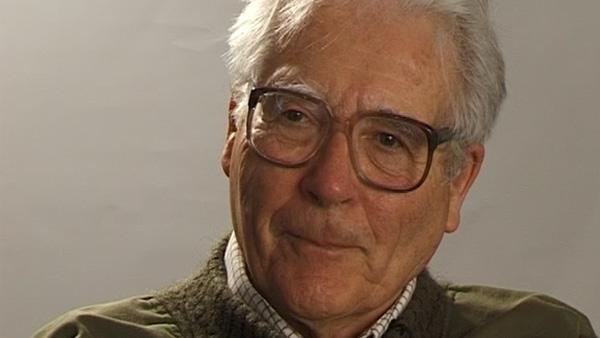NEXT STORY

Health and safety hampers science today
RELATED STORIES

NEXT STORY

Health and safety hampers science today
RELATED STORIES


|
Views | Duration | |
|---|---|---|---|
| 1. The box that attracted me to science | 1 | 1012 | 01:37 |
| 2. My scientific education | 2 | 403 | 03:59 |
| 3. The difference between precision and accuracy | 468 | 04:26 | |
| 4. On being a human guinea pig | 1 | 274 | 03:10 |
| 5. How JBS Haldane made his liver fizz | 2 | 644 | 00:42 |
| 6. Health and safety hampers science today | 306 | 01:06 | |
| 7. How I invented the electron capture detector | 428 | 06:10 | |
| 8. What is the meaning of life? | 2 | 526 | 04:12 |
| 9. An invitation from NASA | 3 | 296 | 02:51 |
| 10. Detecting life on Mars | 1 | 344 | 04:20 |

The burning experiments brought back to my mind my childhood hero, JBS Haldane because one of the things that had impressed me when I read his books when I was young were the experiments he did on himself. For example, he swallowed more and more ammonium chloride to try and titrate himself, to himself more acid. If you swallow ammonium chloride, the ammonia part of the chloride gets burned up and you're left with hydrochloric acid inside you.
He said he thought his liver fizzed in the course of it. I thought he was a very brave man to do it. So we were in a sense fulfilling that childhood ambition.
Born in Britain in 1919, independent scientist and environmentalist James Lovelock has worked for NASA and MI5. Before taking up a Medical Research Council post at the Institute for Medical Research in London, Lovelock studied chemistry at the University of Manchester. In 1948, he obtained a PhD in medicine at the London School of Hygiene and Tropical Medicine, and also conducted research at Yale and Harvard University in the USA. Lovelock invented the electron capture detector, but is perhaps most widely known for proposing the Gaia hypothesis. This ecological theory postulates that the biosphere and the physical components of the Earth form a complex, self-regulating entity that maintains the climatic and biogeochemical conditions on Earth and keep it healthy.
Title: How JBS Haldane made his liver fizz
Listeners: Christopher Sykes
Christopher Sykes is a London-based television producer and director who has made a number of documentary films for BBC TV, Channel 4 and PBS.
Tags: JBS Haldane
Duration: 43 seconds
Date story recorded: 2001
Date story went live: 21 July 2010